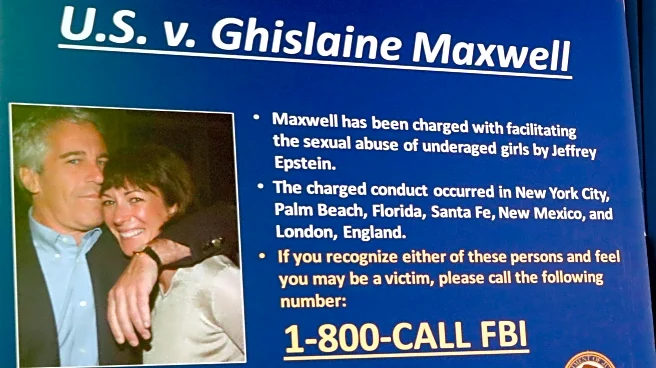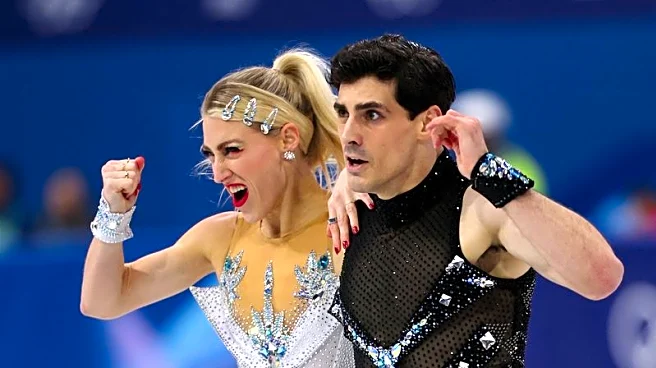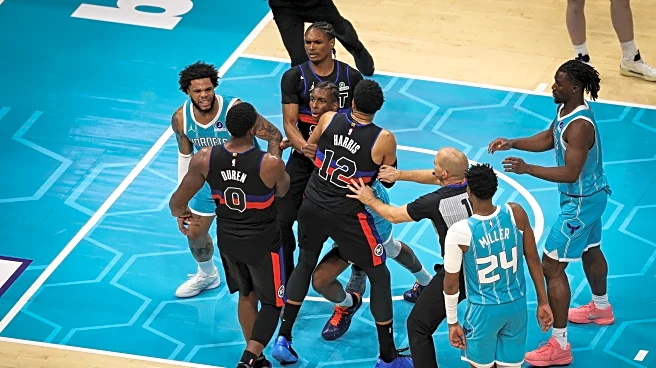NEW YORK (AP) — A federal judge in New York who presided over the sex trafficking case against the late financier Jeffrey Epstein has rejected the government’s request to unseal grand jury transcripts.
The ruling Wednesday by federal Judge Richard Berman in Manhattan came after the judge presiding over the case against British socialite Ghislaine Maxwell, Epstein's former girlfriend, also turned down the government’s request.
Maxwell is serving a 20-year
prison sentence after her conviction on sex trafficking charges for helping Epstein sexually abuse girls and young women.
Epstein died in jail awaiting trial. A Justice Department spokesperson declined to comment.
Berman said the information contained in the Epstein grand jury transcripts “pales in comparison to the Epstein investigative information and materials in the hands of the Department of Justice.”
According to Berman’s ruling, no victims testified before the Epstein grand jury. The only witness, the judge wrote, was an FBI agent “who had no direct knowledge of the facts of the case and whose testimony was mostly hearsay.” The agent testified over two days, on June 18 and July 2, 2019. The rest of the grand jury presentation consisted of a PowerPoint slideshow shown during the June 18 session and a call log shown during the July 2 session, which ended with grand jurors voting to indict Epstein. Both of those will also remain sealed, Berman ruled.
Maxwell’s case has been the subject of heightened public focus since an outcry over the Justice Department’s statement last month saying that it would not be releasing any additional documents from the Epstein sex trafficking investigation. The decision infuriated online sleuths, conspiracy theorists and elements of President Donald Trump’s base who had hoped to see proof of a government cover-up.
Since then, Trump administration officials have tried to cast themselves as promoting transparency in the case, including by requesting from courts the unsealing of grand jury transcripts.
“The government is the logical party to make comprehensive disclosure to the public of the Epstein file,” Berman wrote in an apparent reference to the Justice Department’s refusal to release additional records on its own while simultaneously moving to unseal grand jury transcripts.
“By comparison,” he added, “the instant grand jury motion appears to be a ‘diversion’ from the breadth and scope of the Epstein files in the Government’s possession. The grand jury testimony is merely a hearsay snippet of Jeffrey Epstein’s alleged conduct.”
Meanwhile, Maxwell was interviewed at a Florida courthouse weeks ago by Deputy Attorney General Todd Blanche, and the House Oversight Committee had also said that it wanted to speak with Maxwell. Her lawyers said they would be open to an interview but only if the panel were to ensure immunity from prosecution.
In a letter Maxwell’s lawyers, Rep. James Comer, the committee chair, wrote that the committee was willing to delay the deposition until after the resolution of Maxwell’s appeal to the Supreme Court. That appeal is expected to be resolved in late September.
Comer wrote that while Maxwell’s testimony was “vital” to the Republican-led investigation into Epstein, the committee would not provide immunity or any questions in advance of her testimony, as was requested by her team.

















